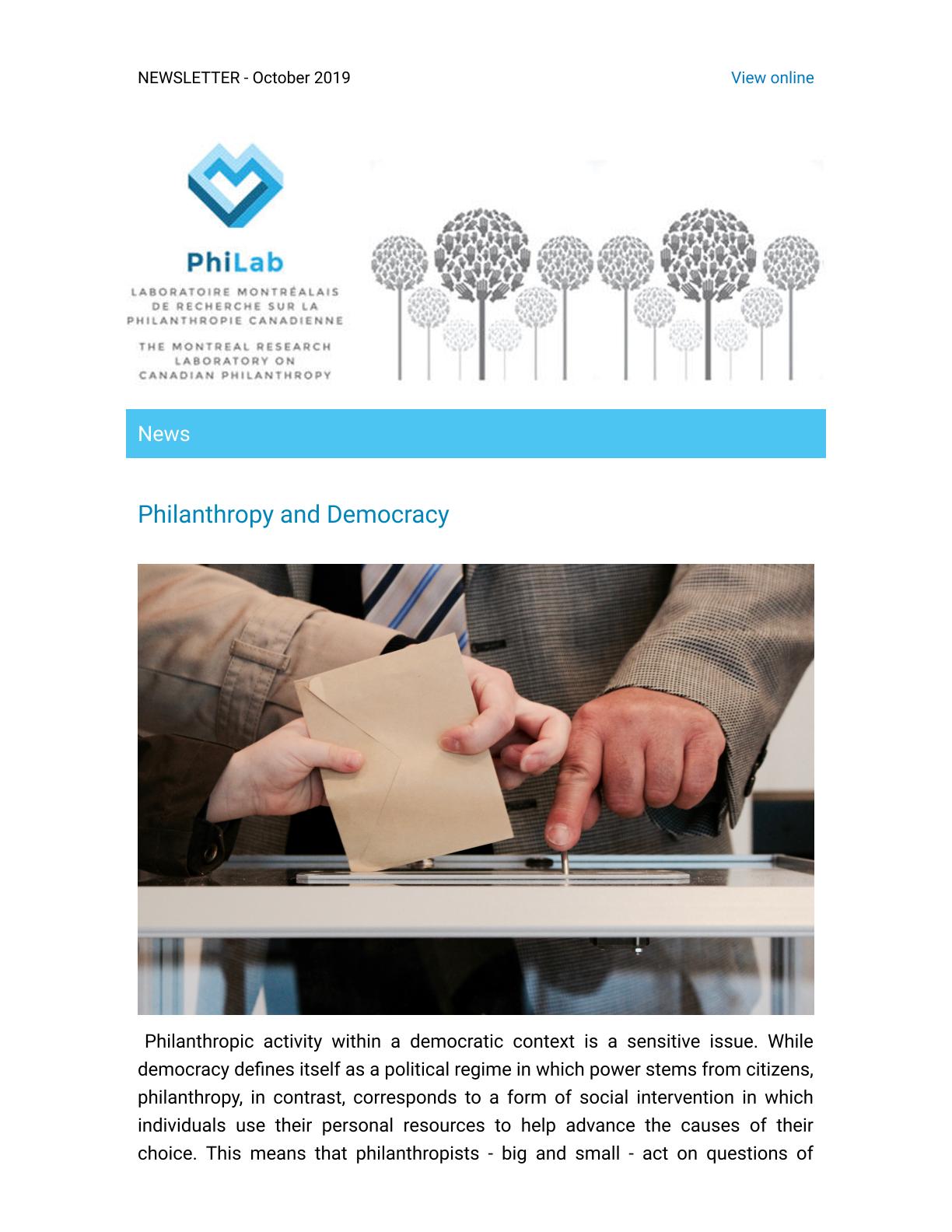Philanthropic activity within a democratic context is a sensitive issue. While democracy defines itself as a political regime in which power stems from citizens, philanthropy, in contrast, corresponds to a form of social intervention in which individuals use their personal resources to help advance the causes of their choice. This means that philanthropists – big and small – act on questions of public interest from a position of personal choice, the latter not necessarily being validated by deliberation. Tension is thus formed between, on the one hand, the democratic ideal founded on decisions being made by majority consensus, an ideal to which all democratic societies aspire to, and, on the other hand, the individual freedom for one to use their financial, or other, resources for the common good. Naturally, this tension is greater in the context of resource concentration, where the majority of the philanthropic sector’s financial resources are controlled by a small number of foundations and the influence of big donors is gaining ground on the donation market. Unless the issue of social inequalities is to be addressed with full force, the fear that big-donor philanthropy will bring about plutocratic tendencies will remain legitimate and very much present. Also, the increase in the population’s demands for public services or for regulatory interventions by the State are limited by the latter’s capacity of action, causing big donors and their foundations to feel the pressure to intervene in the State’s place. How are we to separate the State’s responsibility from that of philanthropy regarding public affairs? The references presented in this newsletter aim at shedding light on the challenges that define the connection between philanthropy and democracy.
Enjoy your reading !
- Editorial: Democracy and Philanthropy – A source of tension for our southern neighbours, by Jean-Marc Fontan
- Philanthropy vs. Democracy by Helmut K. Anheir, published by Project Syndicate
- Towards a reform in the legal framework regulating the political activities of registered charities – Four reactions from the philanthropic sector on the abolition of the 10% limitation by Diane Alalouf-Hall and David Grant-Poitras
- Charities Now Welcome in The Political Arena: What This Means for the Charitable Sector of Today and Tomorrow, by David Grant-Poitras Diane Alalouf-Hall of PhiLab, published by The Philanthropist
- Interview with Valerie Lemieux – Executive Director of the Catherine Donnelly Foundation: Philanthropy, democracy, and listening to voices that have been silenced, by Brady Reid
- Foundations as Purveyors of Intergenerational Justice? A Review of Just Giving and Lessons for Canadian Philanthropy, by Kristen Pue
- Dons aux partis politiques : des gens d’affaires prennent la relève de leur entreprise, published by Radio-Canada
- Partis fédéraux: les dons faits par des mineurs font sourciller des experts, published by LaPresse
- PhiLibrary – Philanthropy and Democracy



